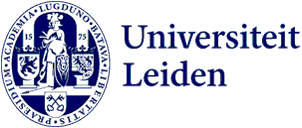
Research and current affairs: 2022 in six stories
Life returned to something resembling normal after Covid but other crises soon took its place. These great challenges are also being felt at the University and our researchers are working on solutions. The nitrogen crisis, problems with young people’s services and an increasingly urgent climate crisis: 2022 in six stories about our research.
Human rights during war
On the eve of the Russian invasion of Ukraine, Russia expert Hans Oversloot spoke about the mounting tensions. He explained how Russia needed a dignified exit strategy to avoid conflict. The Russian invasion began less than two weeks later and a bloody battle ensued for Ukrainian territory such as in Bucha, where hundreds of citizens were killed by Russian forces. PhD candidate Floris Tan explained how Russia is obliged to investigate human rights violations committed by its own forces in Ukraine.
Nitrogen professor in debate
2022 was ook het jaar van de boerenprotesten tegen de stikstofplannen van het kabinet. ‘Stikstofprofessor’ Jan Willem Erisman The year 2022 was also the year of farmers’ protests against the Dutch government’s nitrogen plans. ‘Nitrogen professor’ Jan Willem Erisman joined the debate several times, about the reliability of the calculation models used by government agencies, for example. According to Erisman this discussion was unwarranted and there should have been more debate on how the models would be applied. He also responded to the plans presented by the government at the end of November, including buying out farmers.
MRI of the adolescent brain
After multiple lockdowns and strict Covid rules, we returned in 2022 to relative normality. But it became increasingly clear that many young people are still suffering from mental health issues after the crisis. Our academics do a lot of research into parenting and the relationship between parents and adolescents. With the aid of MRI technology, they discovered that parental criticism activates regions of their adolescent children’s brains that are also activated when processing pain. According to researcher Lisanne van Houtum, the discovery can help improve therapy for depressed adolescents.

Children taken into care
It caused the Rutte III cabinet to fall last year, but the child benefits scandal frequently featured in the news in 2022 too. The extent of the damage became increasingly clear and in some cases children were even taken into care. PhD candidate Denise Verkroost conducted research into a grey area where parents are pressurised to ‘voluntarily’ cooperate with childcare services. Children are sometimes taken into care without the intervention of the courts.
Electricity-guzzling data centres
It was going to be the largest data centre in Europe, but the plans by Meta (the parent company of Facebook and Instagram) fell through after all. The Zeewolde municipal council voted in favour of the construction of a data centre that would consume as much electricity as 460,000 households annually. According to physicist Remko Fermin there are methods that would cause the memories of data centres to use much less energy, for instance with the aid of superconductivity.
Our plastic in Asian waters
A tax on plastic bottles was introduced last year but that will by no means resolve the plastic problem. Researchers from the Leiden Institute of Environment Sciences discovered that a lot of the plastic food packaging that is thrown away by the Dutch ends up in Asian seas. According to the researchers good recycling remains important but we also have to use less plastic.

Want to receive stories about the impact on society of our researchers in 2023? Sign up for our weekly Dutch newsletter or monthly international one.
Text: Tim Senden
